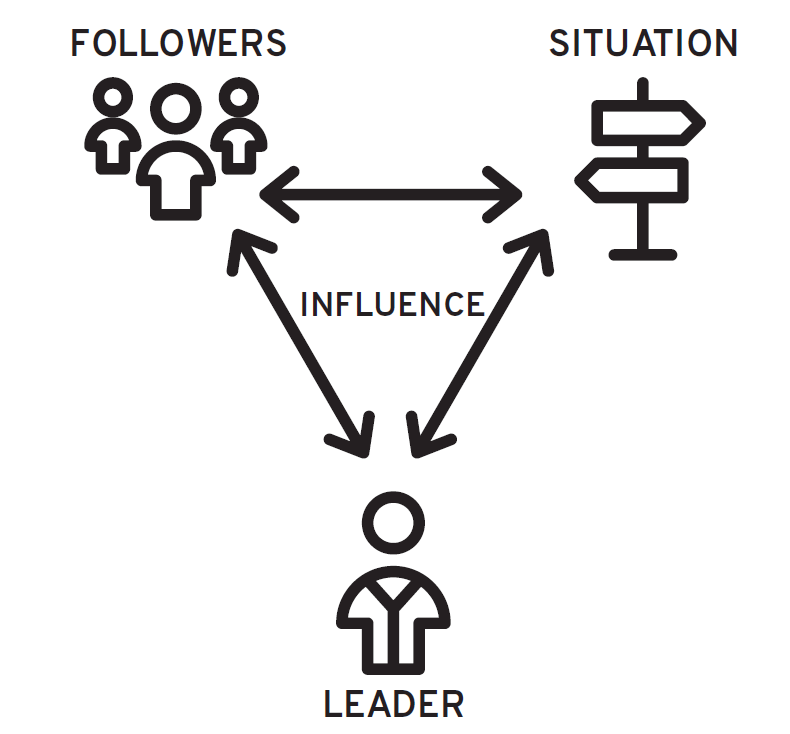How to Become a Bible-Centered Leader
Biblical insights that inform our leadership
Think about a time when you experienced a spike in your desire to grow as a leader. What was the trigger? Where did the increased motivation come from?
Most leaders answer this question by identifying a set of leadership skills they wanted to refine or develop. That’s probably not a surprise. When seeking to grow, leaders look for practical help that will increase effectiveness and productivity. That’s why we read books, attend workshops, or engage with a coach. When it comes to growing as a leader, “how to” almost always wins the day.
A Primary Leadership Resource
There is nothing wrong with a skill-building focus for leadership development. It should be part of every leader’s personal growth agenda. But the centrality of skill-building as a motivator explains why so few leaders view the Bible as a primary leadership resource.
Here’s why: The primary contribution the Bible makes to leadership development is not skill-building.
Skills and methods are almost always time- and culture-bound, connected to a specific leadership context. The “how tos” of leadership in one context rarely translate directly to a different context. Skills and methods observed in the Bible are from a very different time and culture. They are helpful to leaders today only when we extrapolate principles and values that transcend the specific situation.
The primary contribution the Bible makes to leadership is not skills, but values. Almost all leaders recognize the importance of values as the nucleus of a cohesive philosophy of ministry or leadership. Values become practical when they help leaders answer questions about power—how do I gain and use influence, judgment—how do I make decisions, and success—how do I measure and evaluate results. But few are motivated to grow by a felt need for leadership values.
There is a disconnect between the primary motivation for leadership development and the primary contribution the Bible makes to the topic. This explains why it is possible to know a lot about leadership and a lot about the Bible without being a Bible-centered leader. We know a lot about leadership and a lot about the Bible—separately. But it doesn’t have to be that way.
Reading Scripture with a Leadership Lens
Christian leaders are taught how to engage the Bible devotionally and theologically. Both are critical. But we need a new lens for engaging Scripture to inform our leadership.
One of the best ways to learn leadership, including in the Bible, is by observing other leaders asking three simple questions:
- Who is the leader?
- Who are the followers?
- What is the situation?

By observing the interaction between a leader and followers in a specific situation we can extrapolate principles and values that transcend time or culture.
The Bible is not a “how to” manual for leadership development. But it is rich with leadership interactions. My research of leader-follower interactions in the Bible identified 1,090 leadership conversations.
Biblical Context of Leadership
Context is critical for anyone trying to make sense of Bible passages. But because it is so uncommon to think about the Bible as a source for leadership wisdom, we rarely consider leadership as part of the context.
You may be pushing back on my assertion. So here’s an example. A very familiar verse to leaders is Hebrews 13:8: “Jesus Christ is the same yesterday and today and forever.” These words have powerful implications, both devotionally and theologically. But rarely are they viewed in context.
Hebrews 13:7 says: “Remember your leaders, who spoke the word of God to you. Consider the outcome of their way of life and imitate their faith.” The exhortation to remember, consider, and imitate leaders who have gone before us gives context to verse eight.
The whole point of verse eight—the unchanging nature of Jesus—is to reinforce a powerful message: The same divine force at work in the lives of leaders who have gone before us is available to you and me today. Because Jesus is unchanging, we are urged to consider the outcome of the way of life evidenced by great leaders of the Bible and the history of the church and to imitate their faith in him.
Learning from Paul
Here’s another example, from the words of Paul. In Acts 20:35, Paul quotes Jesus as saying, “It is more blessed to give than to receive.” We are not given the context in which Jesus spoke these words, as they are not referenced in any of the four Gospels. But we do have the context of when Paul quoted Jesus. Paul was wrapping up an invitation-only leadership meeting with beloved colleagues from Ephesus. He had labored with them for three years until he was forced to flee the city to escape a riotous crowd bent on killing him.
On his way to Jerusalem, Paul arranged to meet this select group of leaders in the coastal town of Miletus, in modern-day Turkey. In his closing words, Paul reminded these leaders how he had conducted himself among them. He had not coveted the possessions of others but rather had worked hard with his own hands to provide for himself and his companions. With this kind of hard work, Paul set an explicit example, which he reinforced with the words of Jesus: “It is more blessed to give than to receive.”
In the context of this exclusive leadership gathering, we see Paul reminding his fellow leaders that he never used his position as a leader to take from others. He regarded leadership as a platform for service. Paul didn’t want his colleagues to take advantage of the weak, nor use leadership to enrich themselves—temptations for leaders in every culture and age.
Leaders Today
As leaders today, our platform for influence is not about getting, it’s about giving. Jesus set this example for us. The real blessing of leadership comes when we leverage our influence to benefit others, not ourselves.
These two examples illustrate how easy it is to miss the leadership context of a biblical passage. And my leadership survey of the Bible convinced me you don’t have to force the issue. The Bible is already rich with leadership data. We simply need to read and study it with a leadership lens. When we do, our values are shaped by the timeless truth of the Bible and we can glean powerful insights that inform our leadership.

Steve Moore
Steve Moore is president of nexleader, giving leadership to a growing network of coaches who utilize the Identity Profile Self-Awareness Tool (myIPSAT.com) to help individuals turn increased self-awareness into effective self-leadership. He has served as a missions pastor, teaching pastor, and formerly the president & CEO of Missio Nexus.
Thanks to the support of our faithful financial partners, American Bible Society has been engaging people with the life-changing message of God’s Word for more than 200 years.
Help us share God's Word where needed most.
Connect with our Bible engagement blog for leaders and receive a Bible-reading Habit Guide for your community.










